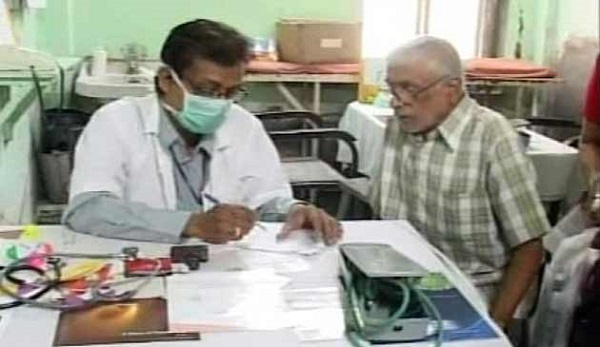Praja Foundation report on state of city’s health throws up some grim truths on public health care in the city.
by Nidhi Qazi
In a recently-released report on the city’s health, the Praja Foundation has found an increase in the number of dengue, tuberculosis (TB) and cholera cases, though there is a decrease in the cases of malaria.
Praja, founded in 1997 by a group of eight Mumbaikars, released its white paper on ‘The State of Health of Mumbai’ last week. The data is based on information gathered through RTI from municipal dispensaries, hospitals, State Government dispensaries and hospitals and other Government health care centres.
Nitai Mehta, Founder Trustee, Praja, said, “BMC needs to be complimented on reducing the increase in malaria cases drastically from the peak of 2010-2011 (over 78,000 cases) to less than 22,000 cases reported in 2012-2013. But there is little reason for complacency. Cases of dengue have shot up drastically. TB incidences are also on the rise. Deaths due to cholera have almost tripled from the previous year.”
The data collected from MCGM dispensaries and hospitals and State hospitals and other Government health centres shows that in 2012-2013, there were 4,867 dengue cases as opposed to 682 cases in 2008-2009. Last year, 36,417 cases of TB were reported from municipal and Government dispensaries and hospitals, of which 6,921 patients died of TB.
Additionally, cholera incidences have once again started increasing in the city. Nine deaths were due to cholera in 2012-13 against three in the previous year.
Milind Mhaske, Project Director at Praja, added, “From another perspective, if we had to depend on this data for the entire city, in 2012-2013, 1 out of 567 people in Mumbai suffered from malaria, 1 out of 2,555 people had dengue (last year 1 out of 6,617 had dengue), one in 341 people had TB and cholera hit 1 in 63,000 Mumbaikars! The ratio has been on an increase since last year for all major diseases.”
Andheri (East) leads in diseases among all the municipal wards. The ward (K/E) has shown highest incidences of malaria, dengue and TB. Kurla (West), L ward of the MCGM has the highest incidence of diarrhoea, almost double its nearest rival.
According to surveys conducted by Praja, over 70 per cent of Mumbai’s population visits private health care centres for treatment and 35 per cent visit municipal and Government dispensaries and hospitals.
But since there is no way to track any data from the privately-owned health care custodians, Mehta rues, “How can civic authorities frame any health care policy for our megapolis when it does not have access to health care data from the private doctors, clinics and hospitals visited by a distinct majority of our city population?” The reasons for the poor data-tracking vary from fear of income tax scrutiny to increase in paperwork to sheer apathy.
Mehta concludes, “The report on the state of health of Mumbai raises pertinent questions of grave consequences for the city that our policy makers ought to consider seriously and expeditiously.”
See the full report here.
(Picture courtesy ibnlive.com)
